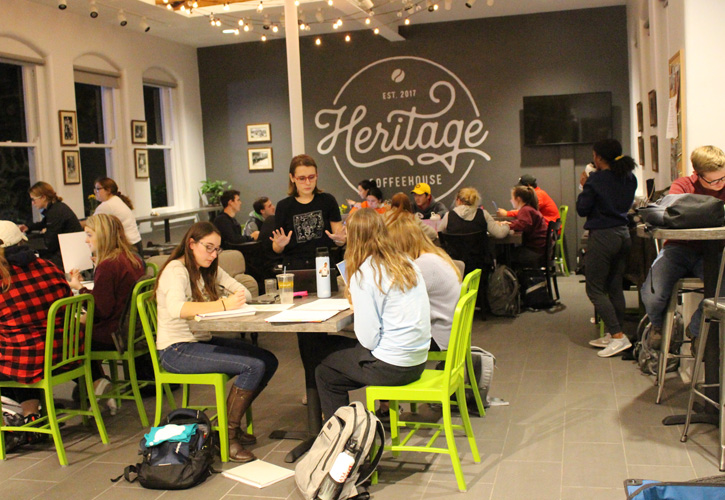Integrated Learning-Living Communities

Core Integrated Studies Program welcomes 94 new students in fall 2019
By Marissa McCray
Fall semester brought new experiences for many first-year students beginning with attendance at the annual First Year Arts Immersion – Turangalila, a symphony by composer Olivier Messiaen. Dayton Philharmonic Conductor, Neal Gittleman, gave a special lecture to Core’s ASI 110 class in preparation for the performance that included contextual background about Messiaen’s life and work. The immersion event each year exemplifies Core’s curricular and co-curricular integration of the arts and culture.
Core continues its presence in the student neighborhood with two Special Interest Houses—one a Legacy House at 216 College Park, and the other at 916 Alberta. Core students representing all four academic years participated in various house events, such as Core faculty speakers and midterm exam study sessions. Students in both Core Houses have plans for further community engagement and are an extension of the vast peer support network available to Core students in all stages of the program.
A new addition to Core this year is weekly study hours at Heritage Coffee House. Every Monday night from 7:30 to 9:30 p.m., Core Fellows—second-year Core students who tutor first-years, hold an alternative study location to come together, study with free coffee, and build community at a designated spot for humanities majors and those involved in the Core Program. Read more on Humanities Heritage Nights in the College Newsroom blog.
Core continues to utilize its social media channel to profile students and publicize program news and events. Stay up to date and join the social conversation by “liking” the University of Dayton Core Program on Facebook.
As the oldest learning-living community on campus—the Core Program is now in its 34th year. Core continues its longevity as a challenging, 2 ½ year, innovative, interdisciplinary curriculum. Students take carefully coordinated courses in the humanities, arts, and social sciences that center around the common theme: “Human Values in a Pluralistic Culture,” that fulfill many Common Academic Program (CAP) requirements.
